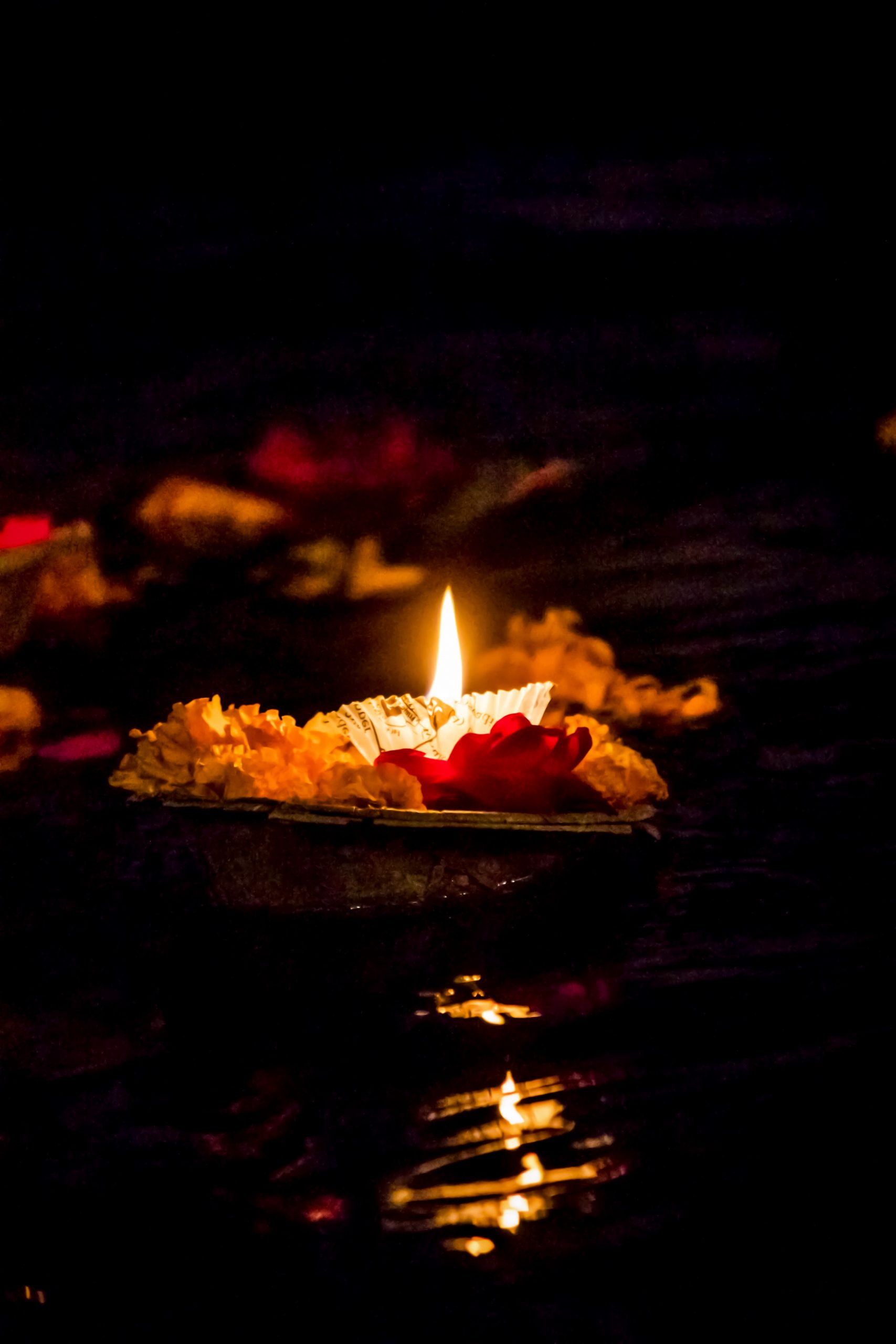
Her mother’s gold belongs to her mother but stays in the pawnshop. She learns from her mother that women aren’t much different from the thaali–her mother had pawned her own to pay for sadangu [1] expenses. Her mother plaits her hair into a single plait and tells her that she can no longer wear double plaits. She would soon learn that this was one of the many privileges that would be revoked. As they smear sandalwood on her cheeks and sprinkle rosewater over her, she hears whispers and she learns. Like the thaali, which can’t be reclaimed and is eventually sold to someone else, she knows that she will eventually need to leave for her new home. She knows that she carries her family’s pride–the family she’s born into and the one that they have chosen for her. Like 916, 958, 750, standards set for the quality of gold, a woman too has standards that she must meet in order to attract buyers. She has to be soft and malleable. Pure and pristine. Pretty and kind. She cooks tau sambal. She cleans the toilets. And she remembers to smile. Her family unanimously agrees that she has studied enough and that she needs to start working to make money for her wedding ceremonies and, in the future, tuition fees for her kids.
She lugs around a body which isn’t hers, a voice which isn’t hers and a life which isn’t hers. She can only use them for others or risk becoming a bitch or a witch. Her grandmother toiled hard constructing roads. Her mother mopped floors. Her aunt sat at the factory assembly line, soldering. Her sister sorted letters at the post office. She sits at the hospital reception office calling patients and passing patient files to doctors. Most doctors are dressed in shirts and pants. Except one who wears a saree and no thaali. She wishes she could carry a Bonia bag like her and paint her nails red too. But she remembers her friend pointing out that red wouldn’t go too well with her dark skin. Just like how aspirations of becoming a doctor don’t go too well for people who look like her.
The only dream she is allowed to have is about her future husband. She hopes that he will not spend all his money on drinks at the coffee shop or cigarettes at the mama shop. That he will not have an affair with someone at work. That she will bear children without complications. That he will not go to jail, leaving her on her own to fend for herself and her family. That he will not abuse her or her children. That she will die before him so that they do not break her glass bangles, wipe away her red pottu, drape her in white for the rest of her life and not invite her to any festivities in the future. That she will not have to pawn her thaali for money.
She slices a lemon into two and carefully scoops out the pulp. She fills it with ghee and a cotton wick. She smears kumkum on three points on the lemon. She cuts the bottom of the lemon slice to ensure that it can stand on the plate filled with rose petals. She lights up the wick and places it on the plate. With the lit lemon vilakku in hand, she stands in front of the idol of the Durgai Amman and prays. She’s awestruck by how Durgai Amman looks. Pure and pristine. Pretty and kind. With a thaali around her neck.
She prays that she has a daughter just like her. She would teach her new rules. Teach her that she’s perfect as she is. That having periods does not make her dirty. That her desires are not sins. That her mistakes only make her human. That she can and should make decisions for herself. That the world is hers to discover. That she is free as the air. That she does not need to be caged to be protected from the evil ways of the world. That she can let down her hair regardless of whether it’s curly or straight. That she can wear black, white or whatever colour she feels like. That she can love and leave whomever, whenever. That she should leave spaces that are devoid of respect and love. That she must be complete on her own.
Chandralekha Thanabalan is a Singaporean Indian woman. She has spent most of her life in Yishun and Sembawang. She enjoys writing and performing spoken word poetry in Tamil.
[1] Also known as a puberty or coming-of-age ceremony, a Hindu practice to commemorate one’s first menstruation.